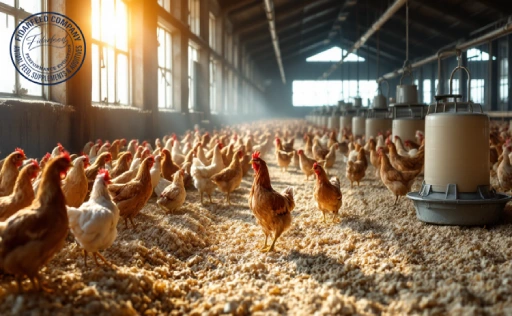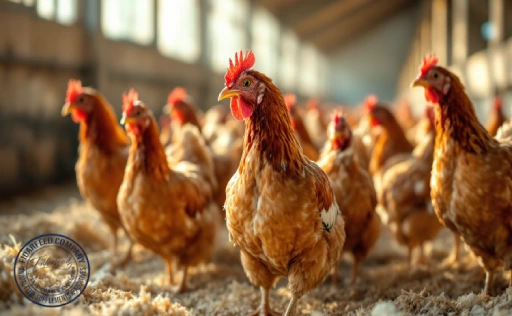
Do Cats Get Vaccines? Absolutely—and if you’re a cat breeder, staying informed about feline vaccination is essential for the long-term health and safety of your cats. Whether you’re raising your first litter or managing a seasoned cattery, understanding vaccinations can be the difference between a thriving colony and a preventable health crisis. Vaccines aren’t just a medical checklist—they’re a powerful tool in responsible breeding and animal welfare. Let’s explore what you really need to know.
Do Cats Get Vaccines? Why It Matters for Every Breeder
Every cat, from playful kittens to dignified adults, benefits from vaccinations. For breeders, vaccines are more than veterinary protocol—they’re a protective shield for your entire cattery. Diseases like feline panleukopenia (a deadly viral infection) or calicivirus can spread rapidly, especially in close quarters. Vaccination not only protects individual cats but also helps maintain herd immunity, minimizing outbreaks and loss. If you’re wondering whether all your cats truly need to be vaccinated, the short answer is yes.
Learn more about: Synbiotic Supplement for Dogs and Cats
Core vs. Non-Core: What Types of Vaccines Do Cats Actually Need?
Cat vaccines are divided into two categories: core and non-core.
-
Core vaccines are considered essential for all cats. These include:
-
FVRCP (feline viral rhinotracheitis, calicivirus, and panleukopenia)
-
Rabies
-
Learn more about: Is Your Cat Constipated? Effective Home Remedies and When to See a Vet
-
Non-core vaccines are optional and depend on risk exposure:
-
Feline leukemia virus (FeLV)
-
Chlamydia felis
-
Bordetella bronchiseptica
-
For breeders, core vaccines should be administered universally, while non-core vaccines depend on specific lifestyle risks—such as cats exposed to outdoor environments or communal living.
Starting Early: Kitten Vaccination Schedules Breeders Should Follow
Kittens receive passive immunity from their mother’s milk, but this begins to wear off after a few weeks. That’s why vaccination should begin early.
Typical kitten schedule:
-
6-8 weeks: First FVRCP shot
-
10-12 weeks: Second FVRCP shot + FeLV (if needed)
-
14-16 weeks: Third FVRCP shot + Rabies
Learn more about: How to Train Your Cat: The Ultimate Guide
-
Annual booster: Required for ongoing immunity
Stick to a consistent schedule. Skipping doses or delaying boosters can lead to immunity gaps that put kittens at risk.
Do Adult Cats Still Need Vaccines? Maintaining Long-Term Protection
Yes—adult cats need ongoing vaccination to maintain immunity. The risk of infection doesn’t disappear with age. Cats living in breeding colonies or those that travel for shows or mating are especially vulnerable.
Annual or triennial boosters (depending on the vaccine type and local laws) help maintain their resistance to dangerous viruses. Work with a vet to develop a tailored plan based on age, lifestyle, and prior medical history.
FVRCP, Rabies, and More: The Must-Have Vaccines for Cats
For clarity, let’s break down the FVRCP combo:
-
Feline Viral Rhinotracheitis: A respiratory infection caused by herpesvirus.
-
Calicivirus: Another respiratory virus with oral ulceration risks.
-
Panleukopenia: A highly contagious, often fatal disease similar to canine parvo.
Learn more about: Active Probiotic Yeast for Large animal
And don’t overlook Rabies, which is legally required in many countries and states—even for indoor cats.
Optional vaccines such as FeLV (feline leukemia virus) are crucial in multi-cat environments where close contact increases transmission risk.
Are Cat Vaccines Safe? Addressing Common Breeder Concerns
One concern breeders often voice is whether vaccines can cause side effects. Like any medical treatment, vaccines can occasionally lead to mild reactions—such as slight fever, lethargy, or a small swelling at the injection site. However, severe reactions are exceedingly rare.
Learn more about: Affordable zeolite feed additive: Your Guide to High-Quality, Low-Cost Options
Scientific studies and veterinary consensus support the safety and effectiveness of feline vaccines. The benefits far outweigh the risks, especially in breeding situations where disease transmission could jeopardize entire litters.
Cost vs. Care: Are Vaccines Worth the Investment for Breeders?
Vaccinations might seem like an added cost, especially for breeders managing multiple cats. However, compare that to the cost of an outbreak:
-
Treatment for panleukopenia can cost hundreds per cat—with no guarantee of survival.
-
Lost litters, vet bills, quarantine protocols, and damaged reputations all carry hidden expenses.
Learn more about:
In contrast, vaccinations are a manageable, predictable investment that safeguards your breeding program’s sustainability and profitability.
Travel, Boarding & Breeding: Situations Where Vaccines Are Non-Negotiable
Planning to board your cats? Travel internationally? Attend shows? Sell kittens to new homes? In each of these cases, up-to-date vaccinations aren’t optional—they’re legally and ethically required.
Learn more about: Smart Shopping: The Probiotic Online Buyer’s Guide for Animal Feed Supplements
Many breeders overlook vaccination documentation until a last-minute emergency arises. Don’t get caught unprepared—keep accurate records and schedule regular check-ins with your vet to ensure compliance with local laws and best practices.
Final Thoughts: Why Vaccinating Cats Is a Responsible Choice for Every Breeder
In the world of cat breeding, health is your most valuable currency. By staying proactive with vaccinations, you’re not just complying with regulations—you’re creating a safe, thriving environment where cats can grow, reproduce, and live healthy lives.
So, do cats get vaccines? Yes—and if you’re serious about breeding, they should. From kittens to queens, vaccinations are one of the most powerful tools in your care arsenal.
Have questions or experiences to share? Drop a comment below—we’d love to hear how you’re managing your vaccination program and supporting feline health in your own cattery.







